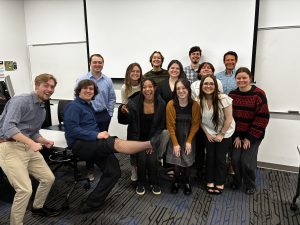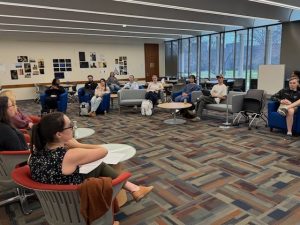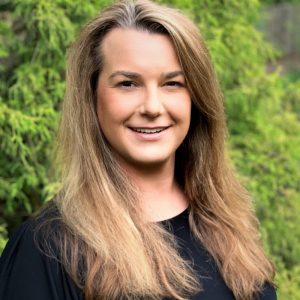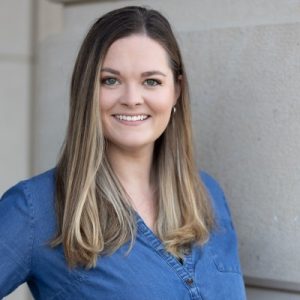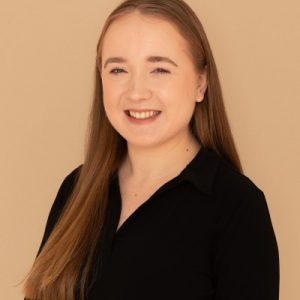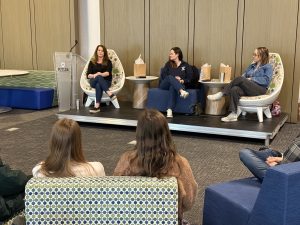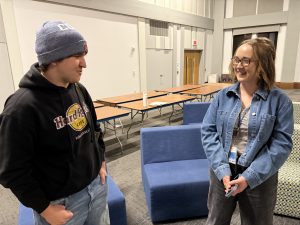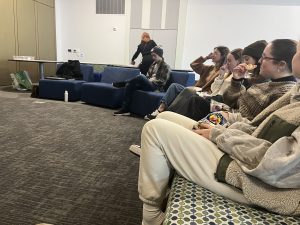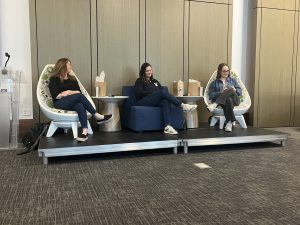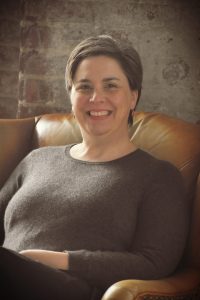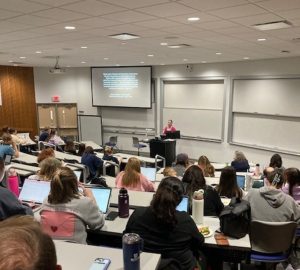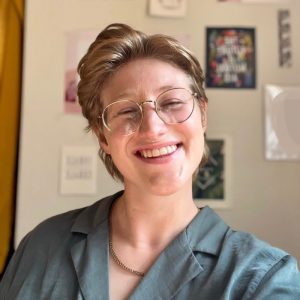April 11th, 2025 was the Butler Undergraduate Research Conference. Undergraduate students from the Butler Community as well as other universities were able to present their recent research to local academics. Students were given a choice to present their work in the form of a presentation or a poster. Presentations were sorted by filed of study with each student given fifteen minutes to present and answer questions before moving on to the next student. The poster presenters were split into two groups with each group given forty five minutes to display their poster in Hinkle Fieldhouse and answer questions as interested individuals approached them.
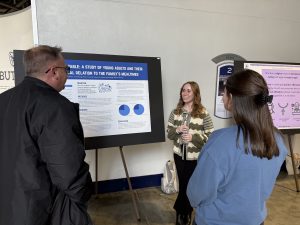
The History, Anthropology, and Classics department had fifteen presenters this year with an additional two students from outside the department presenting on their own anthropological findings. Thirteen of these students were from Dr. Mould’s 460 Anthropology Capstone class with these projects being the culmination of their Anthropological education here at Butler University. All students who participated in the URC have been working tirelessly for months conducting research, collecting data, and designing their findings for the public with the help of their professor mentors.
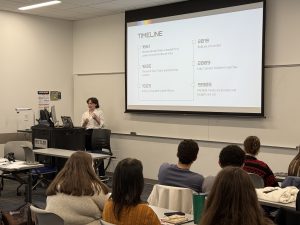 The day started off at 10:30 when the Anthropology presentation block began in Levinson Hall 120. Nine students participated presenting their findings on various topics, from Rocky Horror to Indianapolis Bus Transportation. Presentations consisted of discussing Vietnam War Memories, racism towards medical professionals, body altercations, the Vatican Jubilee, and more. After the panel wrapped at 1:00 pm students got lunch and prepared for an afternoon of poster presentations.
The day started off at 10:30 when the Anthropology presentation block began in Levinson Hall 120. Nine students participated presenting their findings on various topics, from Rocky Horror to Indianapolis Bus Transportation. Presentations consisted of discussing Vietnam War Memories, racism towards medical professionals, body altercations, the Vatican Jubilee, and more. After the panel wrapped at 1:00 pm students got lunch and prepared for an afternoon of poster presentations.
Across the two sessions eight students displayed their posters from 2:30-4:00pm. Highlights included findings on family dinners and their role in storytelling, analyzing reddit threads discussing postpartum experiences, Appalachian healing practices, Ukrainian activism in Indianapolis, and much more.
We are proud of all the students who participated in the Undergraduate Research Conference and congratulate them on their hard work. We hope to see continued efforts for students participating next year.